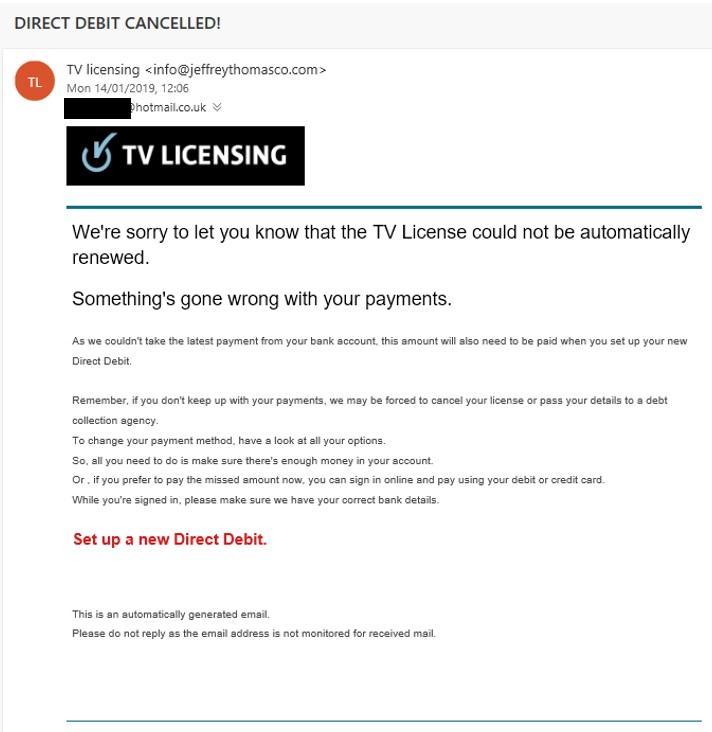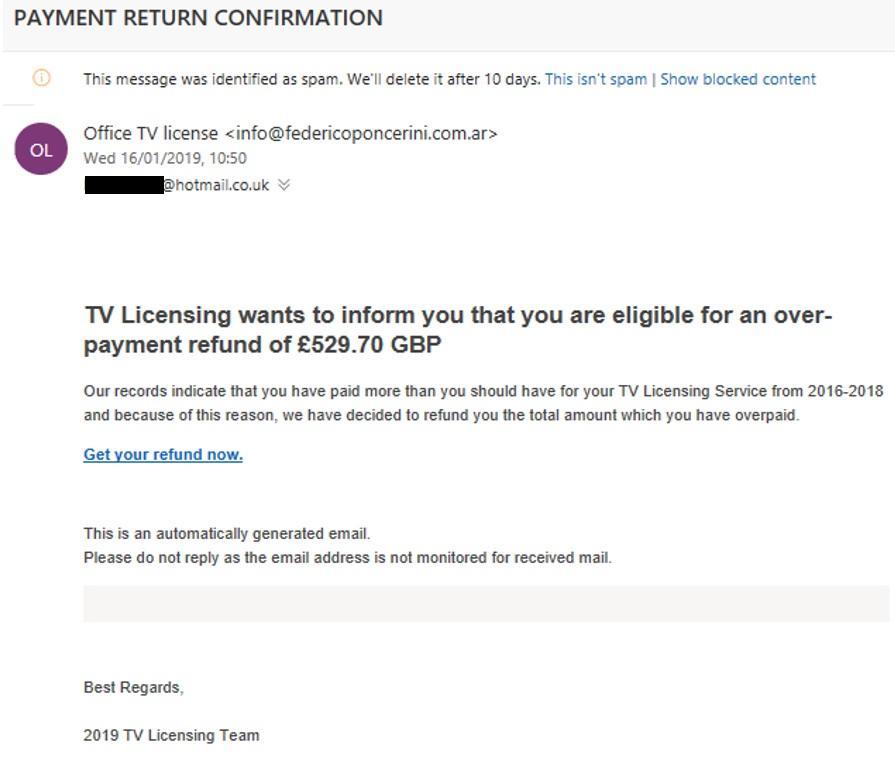Do Not Fall Victim to New Email Scams
By David Hall, MA History and Korean Language
I recently received several scam emails claiming to be from TV licensing. I have also read a few cases where people have unfortunately fallen victim to these scams.
The BBC reported on 7 January 2019, that a married couple had lost nearly £10,000 to TV license scammers, while the Belfast Telegraph reported on 15 January 2019 that an anonymous victim lost £15,000.
Feeling frustrated and concerned other students such as myself may be targeted by scammers, I wanted to share my scam emails and how scams can be identified and avoided.
Students are a prime target for scammers because they can be ‘easy pickings’.
This is especially evident from the under-reporting of scams by students, from last year’s tax refund scam. According to a BBC report in November 2018, many victims of tax refund scams did not come forward and report their case to HMRC.
Students may feel belittled by a scam and unable to reach out for help. For students, this will not just affect our bank balance, but also our mental health and performance at university. But this crisis is preventable, and there are many ways to spot scam emails and avoid falling victim to them. [

This was the first scam email I received, claiming to be from TV licensing. The email stated my direct debit had been cancelled and provided me a link to set up a new direct debit, where presumably my personal and bank details would be stolen.
At first glance this could seem legitimate because it had the official TV licensing logo. However, looking closer there are many indicators this email was a scam.
- A legitimate company like TV licensing would never use an exclamation in their subject.
- The email came from info@jeffreythomasco.com, clearly not the official TV license email address.
- The email made no reference to my name, customer number or any reference number. This sounded
alarm bells immediately as legitimate companies would provide some or all this information in an official email. - There is no email signature or contact information at the bottom of the email.

This was the second scam email I received, claiming to be TV licensing. Unlike my previous email, this one stated I was due for a large refund and should follow their link to ‘claim’ my money. Again, I expected to be asked to provide my personal and bank details.
However, this email was much easier to identify as a scam.
- It had no official branding or logos, unlike the previous email I revived.
- The sender’s name did not make grammatical sense, ‘Office TV license
’, when it should have been ‘TV License Office’. Any errors in spelling and grammar immediately raise suspicions. - Like with the previous email, the sender info@federicoponcerini.com.ar is clearly not the official TV licensing email address.
- Again, like with my previous email, no reference to my name, customer or account number was given, suggesting this was fraudulent.
As scams become more convincing, legitimate and persuasive, more people will fall victim to them. However, there are always ways to identify scam emails and protect yourself and other consumers.
If an email does not look or feel right – trust your intuition – you are probably right. Do not follow any links or open/save any email attachments from emails suspected to be a scam.
If in doubt, open a new browser, search for the company and log into their official website. Alternatively, call the customer help line, they will advise if the email is genuine or fraudulent.
To help companies and consumers better understand scam tactics, it is always good to send screenshots or forward emails to company fraud prevention teams.
If you think you have been scammed, do not stay silent. Contact your bank immediately and try to cancel any fraudulent payments you believe have been taken. The sooner a scam is reported, the easier it becomes to recover your money.
Do not be ashamed to reach out for advice, scams can affect anyone. Your academic advisor, student reps, Student Union staff, friends and family are all great sources of advice and help – you may just find one of them has also been the victim of a scam.
By sharing our stories, emails and prevention tactics, we can prevent more people being scammed.




